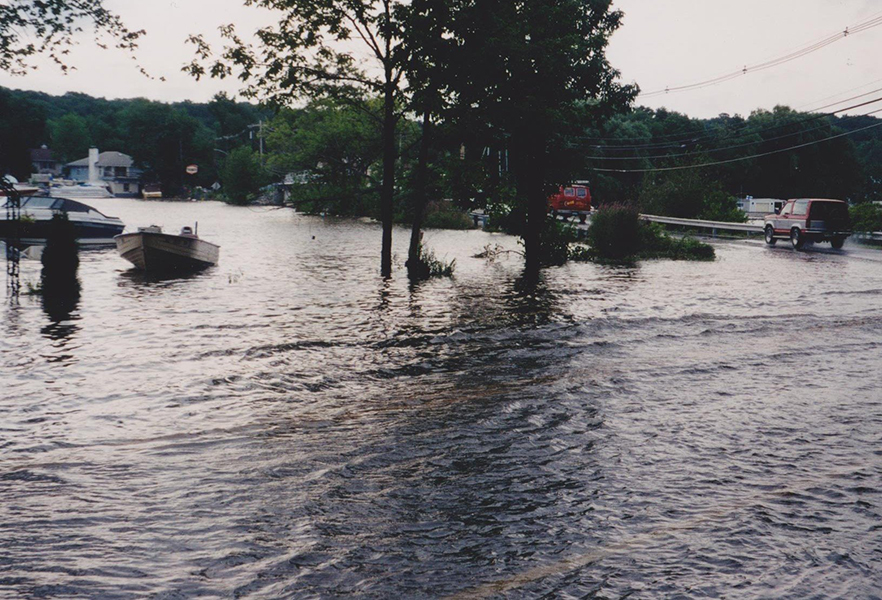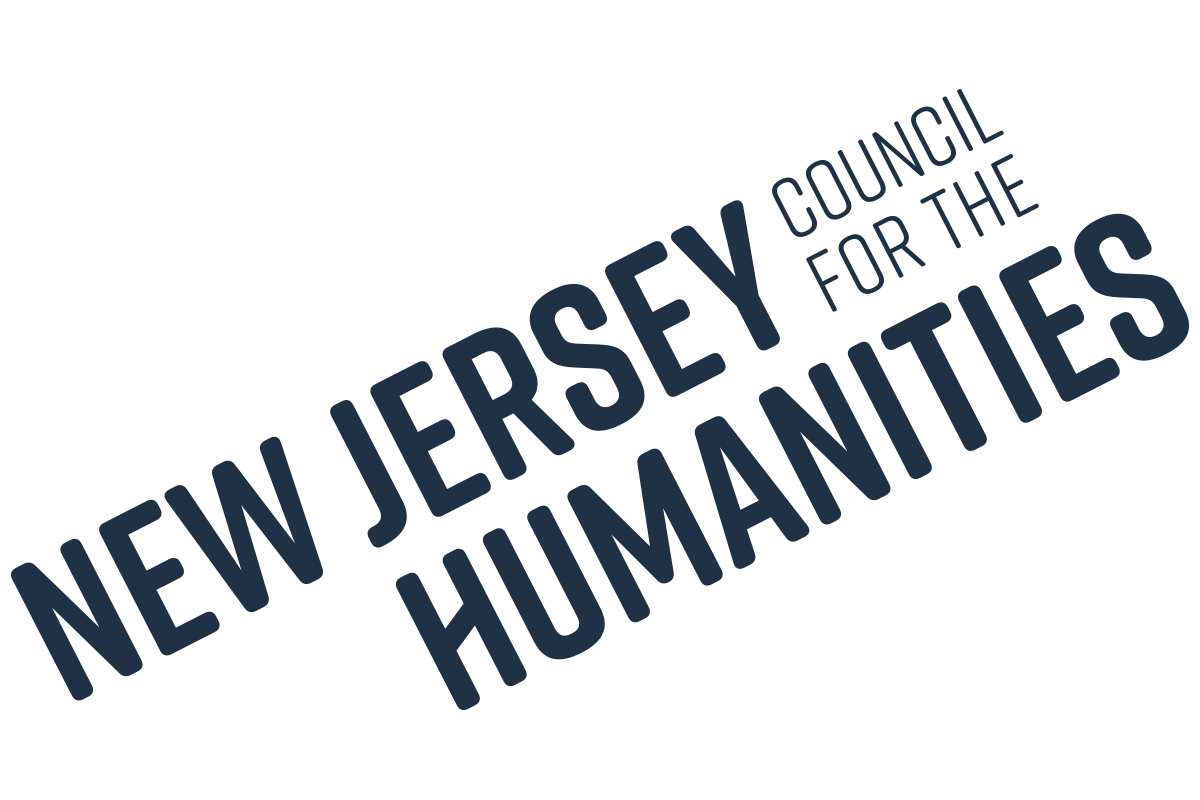
May 06, 2022| Arts & Culture, Community, LHF Environmental & Cultural Center
By: Donna Macalle-Holly
This year marks the 22nd anniversary of a historic flood that took place at Lake Hopatcong, after three days of heavy rain pounded our region from August 12-14, 2000. The storm concentrated on a 10-mile radius of Sparta, dropping some four times the average rainfall for the entire month of August in just a few short days, leaving homes and businesses flooded.
The Lake Hopatcong Foundation planned an exhibit and speaker series commemorating the 20th anniversary of the event, however, plans were postponed due to the pandemic. We are excited to now offer both the exhibit and program series virtually, which we hope will be more accessible for everyone.
A virtual exhibit of personal photographs depicting the devastation caused by the historic flood of 2000, as well as the resiliency of the community who helped each other and worked to rebuild after the unprecedented storm, will be available for viewing from May 10 – June 30, 2022.
The virtual photo exhibit has concluded. A video walkthrough of the exhibit is below.
Facebook presentation by Lake Hopatcong Historian Marty Kane
On the opening evening of the exhibit, a prerecorded presentation by Marty Kane entitled “The Great Flood of 2000” will be presented on our Facebook Page. In the presentation, Marty discusses the flood of 2000 and provides a historical perspective by looking at the lake’s water level and other climatic events which have impacted the lake over the years.
Martin Kane serves as Lake Hopatcong Foundation Chairman of the Board as well as the Lake Hopatcong Historical Museum President. He is the author of several books on local history as well as co-author with his wife, Laurie, of the script for the award-winning documentary Greetings from Bertrand Island.
This Facebook LIVE Event has concluded. A video of the prerecorded presentation is below.
Zoom presentation by Ted Howell
We enjoy reading books and watching movies that create plotlines around extreme weather and environmental conditions that threaten life as know it. This genre of climate change fiction or “cli-fi” offers a chance to be entertained by altered environments and severe weather situations, while simultaneously cultivating thoughts of our current climate situation. This program will introduce books by well-known authors such as Margaret Atwood, Kim Stanley Robinson, and others that depict climate change and/or its effects. Participants can discuss the real-life implications of these works and how their communities can be impacted by climate change.
Dr. Ted Howell is a professor in the Writing Arts and Geography, Planning, and Sustainability departments at Rowan University. He earned his Ph.D. at Temple University. Ted teaches a course called “Cli-Fi” to engage in larger conversations about this expanding genre.
This zoom presentation has concluded. A video of the program is below.
Zoom presentation by New Jersey State Climatologist Dr. Dave Robinson
This program will detail how New Jersey has become warmer and wetter in recent decades. Large rainfall events have increased in frequency, often with major impacts on life and property. Increased warmth threatens human health either directly via prolonged episodes of excessive heat or indirectly through such things as harmful algal blooms. This presentation will address the fundamentals of New Jersey climate and climate change as well as extreme events, such as the August 2000 Sparta/Hopatcong deluge, and their possible relationship to the state’s changing climate.
Dr. Dave Robinson is a Distinguished Professor of Geography at Rutgers University and for the past 30 years has been New Jersey’s State Climatologist. He is a frequent speaker on issues pertaining to New Jersey’s weather and climate and is a contributor to the Intergovernmental Panel on Climate Change and to US National Climate Assessments. Dave has been a member of the National Academy of Sciences’ Board on Atmospheric Sciences and Climate, is past president of the American Association of State Climatologists, has received the Lifetime Achievement Award of the American Association of Geographers, and is a Fellow of the American Meteorological Society.
This zoom presentation has concluded. A video of the program is below.

The Lake Hopatcong Historic Flood of 2000 and Climate Change Program was made possible by a grant from the New Jersey Council for the Humanities, a state partner of the National Endowment for the Humanities. Any views, findings, conclusions, or recommendations expressed in this Lake Hopatcong Historic Flood of 2000 and Climate Change Program do not necessarily represent those of the NEH or NJCH.